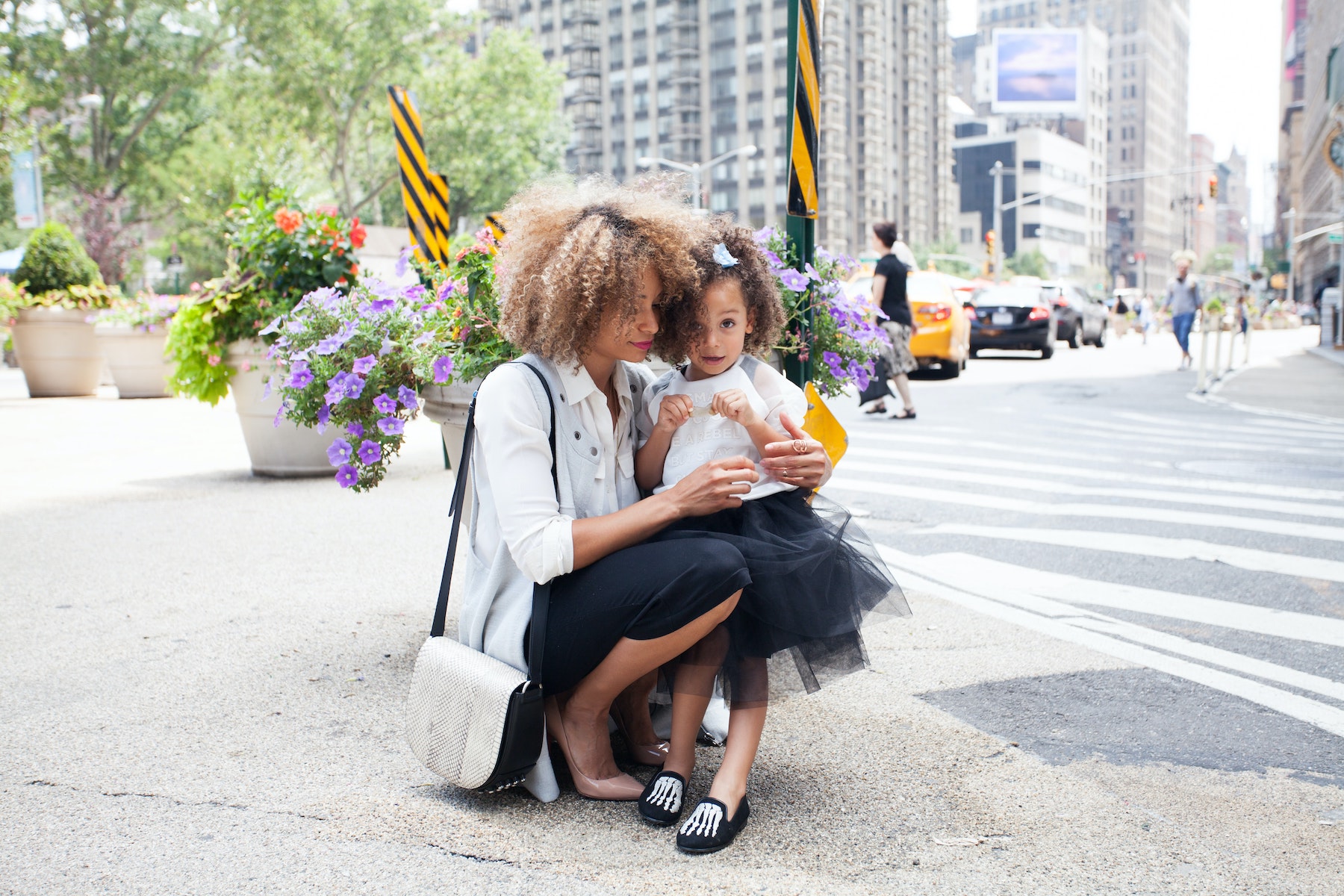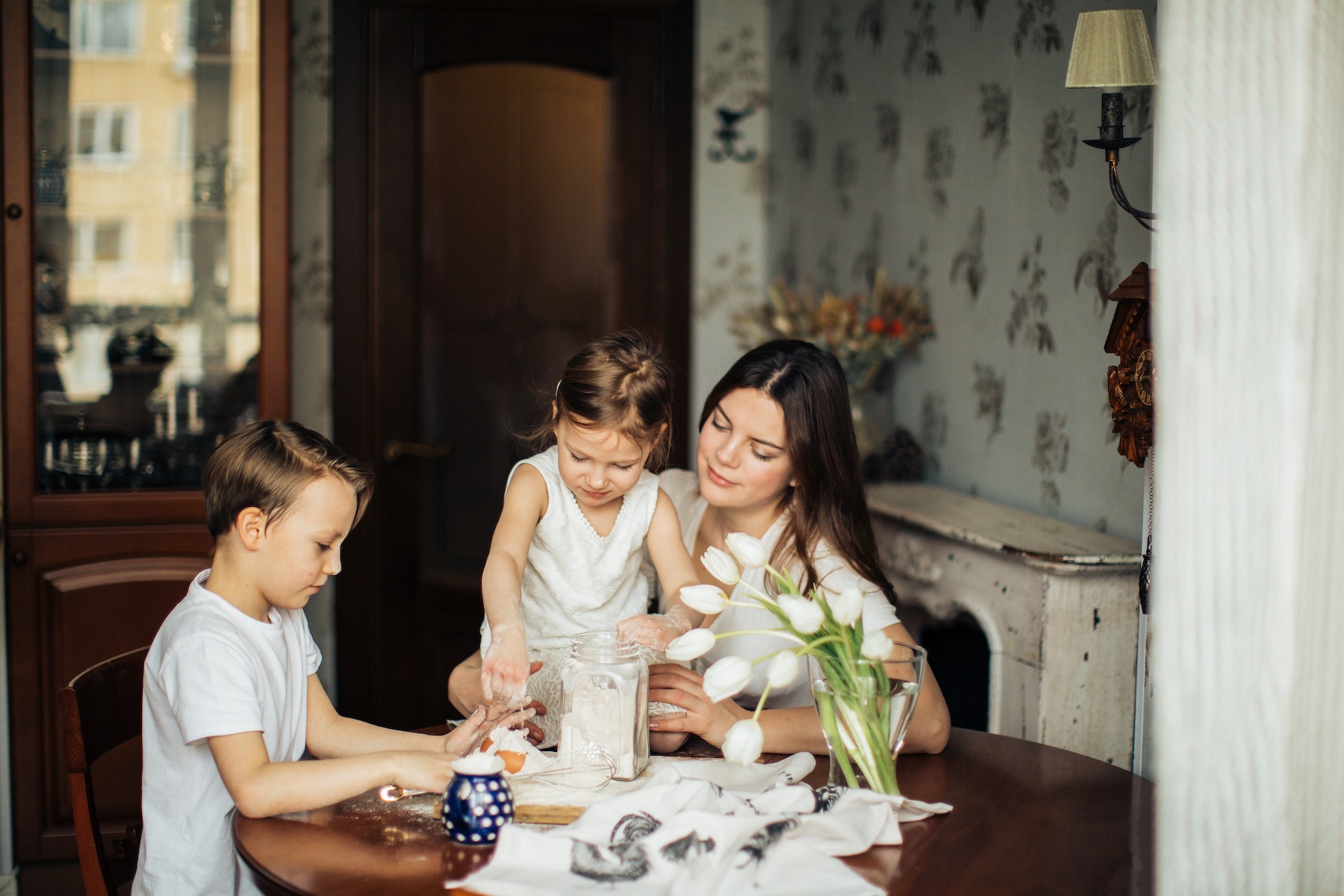
Jingly bracelets and gardenia perfume—I must’ve been about eight as Mom got ready for an evening out. I don’t know where they went, or how late they stayed out, but I do remember the mean things she said to herself in the mirror, which stood in stark contrast to my perception that she was the most beautiful woman on the planet.
Beauty runs deep in our stories, and holds some of our most influential narratives. The problem is, most days we women forget how beautiful we are, and worse, we internalize the opposite. We forget we’re sculpted by God, the very hands who created beauty.
Moms play an enormous role in shaping our daughters’ understanding of themselves. She can say and post all the heartening jargon she wants, but if a mother doesn’t know her own intrinsic beauty, seldom will her daughter (without a lot of soul work through her twenties and beyond).
She sees how you study your thighs in the mirror.
She hears how you critique your weight.
She knows you don’t believe you’re beautiful.
That said, one of the greatest gifts you can give your daughter is to embark on your own journey with beauty—how has it shaped and informed and possibly infected your narrative? Who comes to mind when you think of beauty? Who holds some of your earliest memories surrounding “what is beautiful?”
Understanding and living out our beauty is a lifelong conversation. It can’t happen overnight, and it takes different shapes through our different seasons. Until we know God’s beauty imaged in us, we’re unable to truthfully impart such a reality to our daughters. And it’s never too late. Wherever your journey finds you today is right where God will meet you.
Women are the last mentioned in God’s created order, and arguably the most complex of His creativity, in a phenomenal sort of way. We can’t cause our beauty, for beauty transcends what mankind can create. You are beautiful because God is beautiful, and you are made in God’s image. In the book, Song of Solomon, which is a love poem between a man and a woman, the man tells the woman: “You are altogether beautiful, my love; there is no flaw in you” (Song of Solomon 4:7, ESV).
What does this mean when we’re struggling with our beauty though? What does it mean when we’re ten (or two hundred) pounds above where we’d like to be, or notice yet another nagging chin hair, or feel lonely and insecure and bloated?
Here are some thoughts to consider:
Choose kindness toward yourself. We often speak about “kindness” as part of the fruit of the Spirit, but we rarely remember it’s a personal invitation inward as much as it is something we are to display outward. You are treasured and made in the image of God. Consider inviting another person to speak truth over your beauty—a trusted therapist, spouse, or safe friend.
Resist vocally critiquing yourself . . . negative statements about your body do zero good, and in fact, they’re detrimental. Your daughter looks up to you in ways you cannot fathom, so at some foundational level, hatred of yourself is communicating hate to her. It’s one thing to say, “Hmm, I’m not sure this outfit is a good fit for me tonight,” but it’s another thing to hatefully say to the mirror, “I’m so fat; nothing fits me.” (I’m not saying resist acknowledging weakness and tendencies to sin, but in those recognitions, do remember the Cross—you are not “just a weak sinner,” but a saint who struggles with sin, and will always need Jesus on this side of Heaven.)
Be honest with your daughter about times of wrestling with God’s truths. (“I know He says I’m fearfully and wonderfully made, but sometimes I struggle to believe it. I’m still learning about beauty with you . . .”) This is a very different conversation than mere verbal critiques of yourself.
Be honest with God—He can handle you, and whatever you’re thinking. You needn’t hide that profanity you spoke over your love-handles yesterday, or the stress you took out when eating the gallon of ice cream last night. He knows, He hears, He sees . . . and He wants you to acknowledge His presence with you in these moments. Psalm 139 is often a good starting point.
While we’re here, why don’t you spend a few minutes before stepping back into life speaking some words of kindness over the miracle of yourself and your body, even those parts that are still in process?
 Abbie Smith Sprünger is the author of the new book, What Is Beautiful?
Abbie Smith Sprünger is the author of the new book, What Is Beautiful?
What is beautiful, anyway? It’s a question we all ask at some point in our lives. It’s also a question many of us struggle to answer in a way that satisfies or affirms us. But what if we could change that for our daughters? And our daughters’ daughters? What if we could give them a picture of beauty they can embrace—a picture they can see every day looking back at them in the mirror?
A rhyming illustrated book appropriate for ages 6–12, What Is Beautiful? is a whimsical and refreshing reflection on beauty for every girl at every age.




